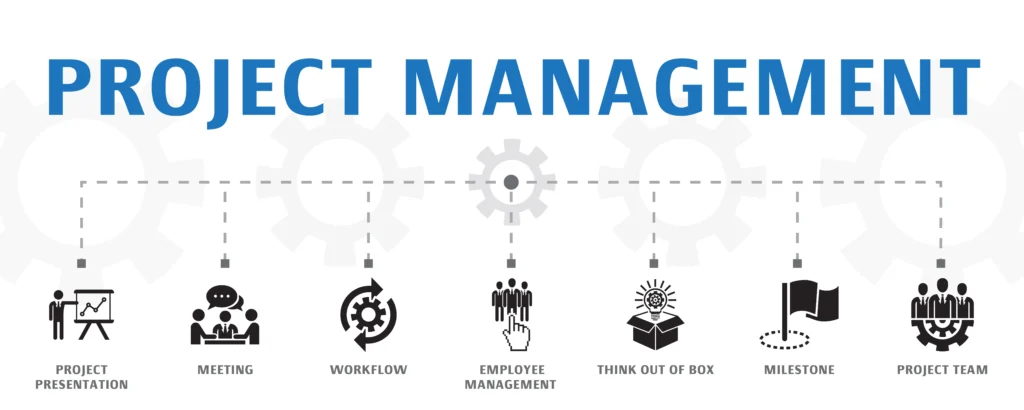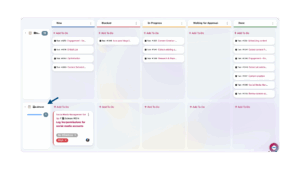Estimated reading time: 13 minutes
Key Takeaways (TLDR)
- Leverage your professional experience, volunteer and freelance to demonstrate project management capabilities.
- Develop essential technical & soft skills for a successful career in PM.
- Utilize job search engines, network & industry resources to identify suitable opportunities and ace the interview
Have you been asking yourself, “Can I be a project manager without degree?” Or certification? A degree is not the most important requirement for a project manager. With determination and the right strategies, you can excel in the project management world and be on your way to helping projects get organized.
While we won’t highlight it as much in this article, my first career was as a registered nurse — not a project manager. Looking back now, I see so much overlap in the two fields in how I organized myself. Did you even know you could have ADHD and be a project manager?
Learn More: ADHD and Project Management: The Good and Bad
Ultimately, no matter the career paths you choose, there are options out there. In this guide, we’ll explore alternative pathways, essential skills, certifications, and job hunting strategies to help you succeed in project management without a formal degree. Let’s take a look and see what’s needed.
Table of contents
Project Management Success Without a Degree

Project management is a vital element to helping organizations achieve their goals and objectives and involves following a well-defined project management process. A project management career is not only rewarding but can also offer an annual salary of over $100,000. It’s no wonder that many people are considering entering the field — and the good news is a degree isn’t always necessary.
In fact, a successful project management career without a degree can be achieved by making good use of professional experience, volunteering, and networking. Sound interesting? Keep reading. We will explore the project management career path and offer strategies for utilizing your current skills and experiences in project management roles.
Leveraging Professional Experience
Utilizing your professional experience is an excellent first step to become a project manager without a degree. Your existing work experience, whether in IT, business, or other relevant fields, can provide a solid foundation to build upon. Adopting managerial responsibilities and acquiring industry expertise are key to developing the skills required for effective project management.
In this scenario, you’ll be looking for project management skill overlap. Have you had to organize groups of people? Have you had to lead initiatives? Have you used relevant project management software? What organizational skills have you had to have? What kind of communication skills have you had to utilize?
Taking a look at all these elements can help you hone in the skills that your previous job gave you and that will also prepare you for your next steps as a great project manager.
As an aspiring tech project manager, here are some tips to help you reach your goals:
- Although often not required, don’t hesitate to pursue additional training or education to qualify for higher-level roles.
- Master digital collaboration tools to streamline your tasks and increase efficiency.
- Be proactive and seek opportunities to gain supervisory experience, which can boost your credibility and skills in the eyes of potential employers.
Volunteering and Freelance Projects
Another effective pathway to becoming a project manager without a degree is through gaining hands-on experience by volunteering and organizing freelance projects. Engaging in volunteer work or tackling hands on projects can help you create a portfolio that demonstrates your organizational skills and project management competencies.
Leading projects outside of work, such as organizing a charity event or working with a team of volunteers in your local community, can provide valuable experience and demonstrate your ability to manage resources and execute a project plan. This hands-on experience will not only enhance your resume but also help you stand out in the job market as a project manager without a degree.
Networking and Mentorship
Networking and mentorship will also be crucial components of your journey as an aspiring project manager. Connecting with professionals in the project management field and cultivating mentor relationships can provide invaluable advice, resources, and job opportunities. Networking can also help you stay informed about the latest industry trends and developments, ensuring you remain competitive for project manager jobs.
Did You Know: Friends were the source of 46% of job openings discovered by job seekers, while 54% of hires were made through referrals.
To start networking and finding mentors, be sure to attend industry events, join professional organizations, and use online platforms, such as Linkedin, to connect with professionals in the field. Be proactive in reaching out to potential mentors and building relationships with them. Their support and guidance can be an invaluable asset on your journey to success for a rewarding career.
Essential Skills for Aspiring Project Managers

Understanding the technical and soft skills required for a successful project management career is crucial for someone looking to become a project manager. These skills are the foundation upon which you’ll build your career and excel in project management roles.
We will explore the essential technical and soft skills to master in the upcoming sections and give suggestions on skill development for enhancing your project management capabilities.
Technical Skills
Mastering industry-specific knowledge, understanding the relevant project management methodologies, and software tools is essential for effectively managing projects. Technical skills, such as expertise in risk management, gantt chart development, project planning and even more, can significantly be part of what takes you from being an average project manager to a great project manager.
Keeping up-to-date with the latest project management methodologies, science, and even with the latest project management software tools is crucial, as they can significantly influence your resource management efficiency. Taking these hard skills and exploring the potential of combining multiple methodologies — while familiarizing yourself with these digital collaboration tools, such as Leantime, will ensure you have the technical skills necessary to excel in your project management career.
Soft Skills
Ultimately, though, your success on your project management journey is dependent on your ability to go from managing resources to leading people. The importance of strong communication, leadership, and problem-solving abilities cannot be overstated enough and can, arguably, be even more important than mastering technical skills, being proficient in computer science, or even other particular industry. Soft skills are what will enable you to work effectively with team members and stakeholders, ensuring projects run smoothly and efficiently.
Enrolling in online education built around leadership is a great way to enhance your soft skills. You can also read literature on effective leadership or watch free YouTube videos on the subject. By honing your soft skills, you’ll be better equipped to handle the challenges and complexities of managing most projects.
Online Courses and Self-Guided Learning

Utilizing online resources to learn project management skills and stay up-to-date with industry trends can significantly benefit your career. Online courses and self-guided learning offer flexibility and accessibility, making it easier for you to enhance your project management education and skills without the constraints of formal education.
Upcoming sections will feature a variety of online courses, books, blogs, and podcasts to assist you in expanding your project management knowledge and staying abreast of industry developments, including resources from the Project Management Institute.
Free and Paid Online Courses
There is a wealth of online project management courses available through platforms like Coursera and Udemy, both free and paid. Free courses can be a cost-effective way to learn project management basics, while paid courses often provide access to more comprehensive content, including lectures, assignments, and personalized feedback from experienced instructors. There are also online agile certifications and other programs that help you learn more specific skills.
Regardless of whether you choose free or paid online courses, the key is to commit to learning and applying the project management principles in real-world situations. Active participation in these courses can equip you with valuable knowledge and skills, enhancing your project management career and you begin gaining project management experience.
Books, Blogs, and Podcasts
Learning from project management experts through books, blogs, and podcasts is another excellent way to expand your knowledge and stay informed about industry developments. These resources can provide valuable insights, tips, and advice from experienced project managers, helping you develop a better understanding of the project management process.
Make sure to explore various resources, such as books written by industry experts, blogs that provide tips and advice, and podcasts that share case studies and examples. Staying informed and current with the latest trends and techniques will better prepare you to excel in your project management career and navigate the dynamic landscape of the industry.
Project Management Certifications

Obtaining project management certifications, such as CAPM and PMP, can significantly enhance your career prospects. These certifications showcase your project management skills and expertise, making you stand out to potential employers. They also demonstrate your commitment to staying current with industry standards and best practices.
We will explore the benefits of obtaining a project management certification and discuss the requirements for the CAPM and PMP certifications in upcoming sections.
CAPM Certification
The Certified Associate in Project Management (CAPM) certification is suitable for those with limited project management experience. Obtaining this entry-level certification can showcase your understanding of project management principles and practices.
To be eligible for the CAPM certification, you’ll need to gain project management education and earn Professional Development Units (PDUs). By pursuing this certification, you’ll demonstrate your commitment to expanding your project management knowledge and skills; readying you for entry level positions.
PMP Certification
The Project Management Professional (PMP) certification is designed for experienced project managers seeking to validate their skills and knowledge. To be eligible for the PMP certification, you’ll need at least 4,500-7,500 hours of project management experience and either 35 hours of project management education or a CAPM certification.
Obtaining a PMP certification can lead to an impressive salary boost – on average, project managers with PMP certifications earn 23% more than those without.
Building a Strong Project Manager Resume

Crafting a resume that highlights your project management skills, experience, and certifications is crucial for standing out to potential employers.
Your resume should showcase:
- Planning
- Leading
- Budgeting
- Scheduling & time management
- Documenting progress
Making it clear that you have the necessary skills to manage projects and excel in a project management role is essential for securing project management jobs and advancing in your project manager career path. As project management professionals, it’s important to showcase our ability to lead projects, manage project scope, demonstrate problem solving skills and that we’re capable of running a large project.
The following sections will provide strategies for customizing your resume to align with specific job requirements and effectively highlight your certifications and skills.
Tailoring Your Resume
Customizing your resume to match the specific requirements of each project management job opportunity is one way to make a lasting impression on employers. By carefully reviewing the job description and incorporating relevant skills, experiences, and achievements that align with the job requirements, you’ll ensure your resume stands out and shows that you are a perfect fit for the role.
An effective resume customization involves incorporating keywords from the job description, highlighting relevant skills and experiences, and adopting a professional layout.
Showcasing Certifications and Skills
Emphasizing your project management certifications, technical skills, and soft skills on your resume is vital for demonstrating your expertise. To best showcase your skills and experience, provide tangible examples of:
- Projects managed
- Tasks completed
- Certifications obtained
- Skills utilized
These examples will help demonstrate your qualifications and make your resume stand out to potential employers.
Remember to highlight the most pertinent certifications and skills for the job, featuring them prominently on your resume.
Job Hunting Strategies

Finding and securing project management job opportunities without a formal degree can be challenging, but with the right strategies in place, you can succeed. Utilizing job search engines, building your network, and leveraging industry-specific resources are essential for identifying suitable project management positions that don’t require a degree.
The next sections will cover strategies to identify suitable job opportunities and prepare for project management job interviews, increasing your chances of a successful job search.
Identifying Suitable Job Opportunities
You can find project management positions that do not require a degree using job search engines, networking, and industry-specific resources. Job search engines like Indeed, Glassdoor, Monster, and LinkedIn can be invaluable tools for uncovering job opportunities in the project management field.
In addition to utilizing job search engines, take advantage of networking and industry-specific resources to uncover job postings. Attend industry events, join professional organizations, and engage with industry-specific websites and publications to expand your network and stay informed about the latest job opportunities.
Acing the Interview
Preparing for project management job interviews is crucial for showcasing your skills, experience, and industry expertise. Research the company, practice common interview questions, and focus on giving concrete examples of your project management experience to demonstrate your suitability for the role.
Ensure to ask company and position-specific questions during the interview to exhibit your enthusiasm and dedication. Doing so’ll make a lasting impression on your interviewers and increase your chances of securing the project management position you desire.
Summary
In conclusion, a rewarding project management career without a degree is well within reach. You can excel in the project management world by leveraging your current job, volunteering, networking, and mastering essential skills. Utilize online resources, obtain certifications, and craft a standout resume to showcase your expertise. With determination and the right strategies in place, you’ll be ready to embark on a successful project management career without the constraints of a formal degree.
Frequently Asked Questions
Becoming a project manager without a college degree can be possible by taking up bootcamp courses, gaining work experience, developing essential skills, and pursuing certifications such as PMI’s CAPM. All of these steps, combined with an impressive resume, will help you embark on the journey to success.
It’s possible to reach the position of project manager without a degree by beginning in an entry-level role and gaining experience over a period of a few years. This can often be three to five years.
You can certainly go into project management without certification as long as you have the right knowledge and experience to back it up. A certificate course may be helpful but isn’t essential for success in this field.
To become a project manager, you should have a bachelor’s degree in management or a related field and at least three years of experience in a leadership role. While some roles may require formal project management education, plenty out there do not and will hire an entry-level position. Earning a Project Management Professional (PMP)® credential is beneficial for your career.
For success in their field, aspiring project managers need to develop a comprehensive set of skills, including industry-specific knowledge, project management methodologies, communication, and leadership.
- Jobs for people with ADHD: Success in Marketing
- What is Lean Project Management?
- Jobs for people with ADHD: Try Project Management
- AI In Project Management: Augmenting the Human Work Experience & Productivity
- Why Do Projects Fail? How to Avoid Failure and Ensure Success
- Benefits of Self-Hosting Your Project Management Tool for Enterprises






